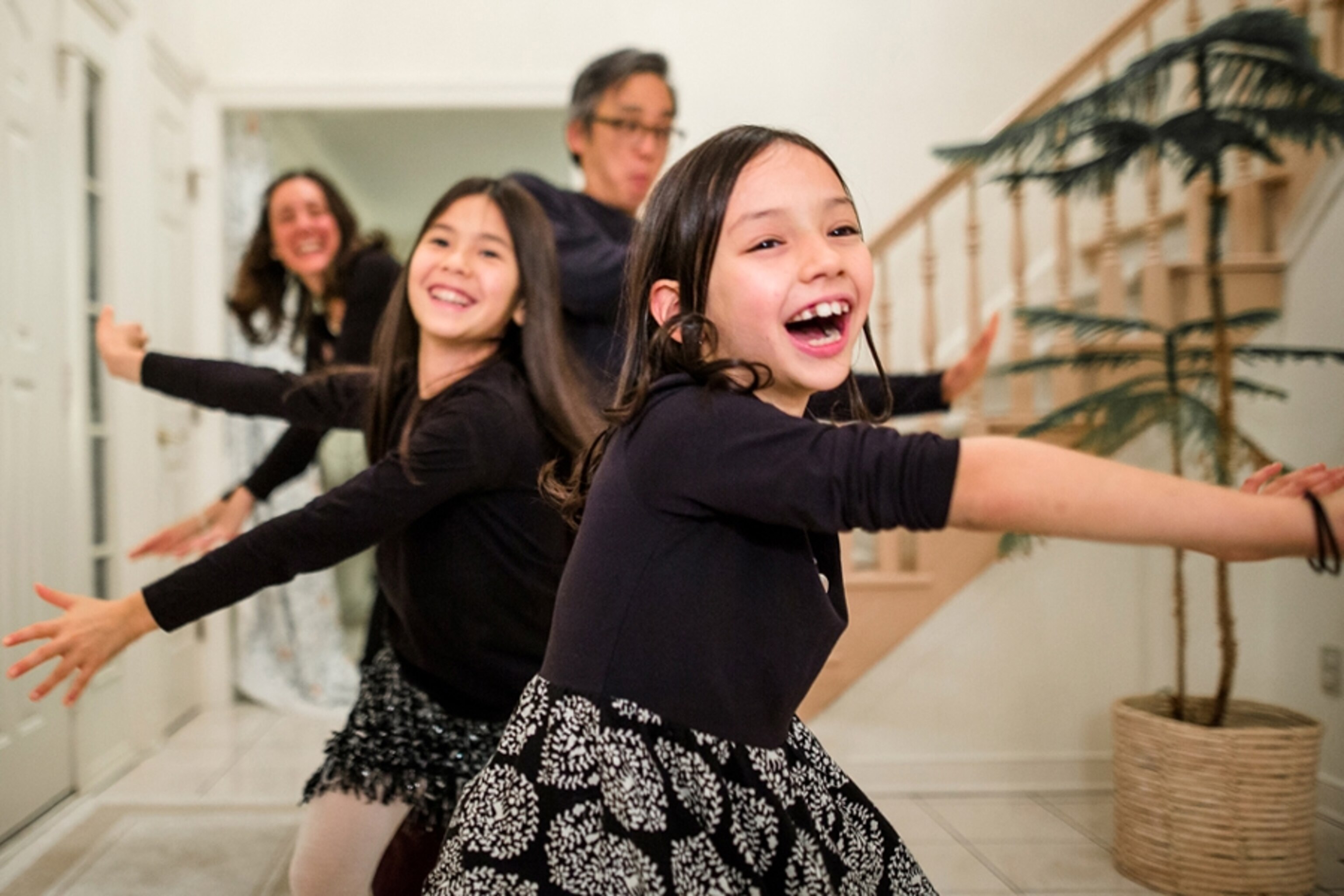
Parents to COVID-19: We’re taking back our weekends.
Shutdowns are making Saturdays and Sundays feel like the rest of the week. Here’s how to change that.
Weekends used to have a rhythm that worked for Ezina LeBlanc, filled with adventures for her 19-month-old twins in Calabasas, California. “Every Saturday, we’d be off to the beach, hiking, a picnic, a museum, a theme park, or even up to Mammoth Lakes to ski,” she recalls.
Shermikia Lemon had a similar routine. The Greensboro, North Carolina, mom shut down her computer on Fridays and dedicated weekends to shopping, seeing movies, and picnicking with her husband and two daughters.
Then, the pandemic hit.
The first Saturday she was stuck home, LeBlanc found herself playing “Ring Around the Rosie” and dancing to “Baby Shark” for hours. Lemon turned to work to fill the weekends. “I was treating every day the same,” she says. “I would wake up, get coffee, and head straight to the computer, even on Saturdays and Sundays.”
In the “before times,” weekdays were for school and work; weekends werefor taking a break. But COVID-19 forced families to stay in one place day after day, making every day feel like the next. Soon it felt like the pandemic has stolen weekends from many families, just when they needed them most.
“To be more productive and spend a good working week, you absolutely need some time to rest, or do something that gives you energy,” professional organizer Paola Tursi says.
Though the structure we once knew has been altered, she says we can reclaim our weekends with a loose plan: Divide both Saturday and Sunday into morning, afternoon, and evening. Write down ideas for fun throughout the week, then fill in those time blocks pulling from your list.
“The weekend is a chance for a real break, and that can still happen during the pandemic,” Tursi says. “It's about choosing and setting your priorities and respecting them.”
Start mornings your way
Lazy weekend mornings are nothing new. But before the pandemic, you could follow them with a rush out the door to someplace exciting. Now, they might unintentionally stretch on all day.
One way to prevent that: Start off high-energy and keep it up from there. “We turn on Alexa to KidzBop, and my hubby and I start a dance party with the kids,” LeBlanc says.
Slower mornings can be easier to control if you plan an end time. Chris Reavis and his 11-year-old son like to play board games, or sometimes his son will draw, write, or work on a puzzle. But once lunchtime is over, the West Linn, Oregon, dad makes sure everyone gets more active.
And if you want a day that’s lazy from start to finish? That’s fine too. Just be sure it’s a choice.
“If you all of a sudden realize that it's evening, you still haven’t showered, and you have no idea how you spent your day, you’re probably going to regret it,” Tursi says. “It’s all about making a decision and acting the way you decided.”
Afternoons don’t have to drag
With most traditional weekend activities now extremely limited or completely shuttered, parents are often left with empty afternoon hours. But filling them with activities that set weekends apart can be a challenge when everything—work, school, socializing, personal time—happens at home.
“We sort of lost our ‘safe space,’ that privacy at home, and we have nowhere else to go,” Tursi says. “That’s why we need to create new circumstances.”
Sometimes that means replacing old traditions with new ones. Before the pandemic, Reavis and his son had a regular weekend routine of lunch at a favorite burrito spot, followed by tennis practice and matches. Now, they hike. “We discovered a different park in the forest near us with bridges and great places to explore,” Reavis says. “He’s as excited about this as he was a new Marvel movie.”
Other families are turning old, infrequent activities into regular weekend events. For instance, before she was working from home, Lemon and her family would occasionally have picnics on a lake during the weekend. Now she makes those an almost-every-weekend happening to keep away from her laptop. (Check out easy picnic recipes the kids can help prepare.)
For Kathy Heffernan of Lynn, Massachusetts, a change of scenery away from home is especially important after a hectic week juggling work and parenting her five-year-old son. So they’ll usually head outside for a nature scavenger hunt or another activity—no matter what the weather. “If it’s rainy we put on our rain boots, take the umbrella out, and stomp in the puddles all the way to a local pond,” she says. (Get printable neighborhood bingo cards.)
Wrap it up right at night
Special meals, staying up late … that’s what weekends are all about. That goes double during the pandemic. But a traditional weekend treat only delivers if it’s designed that way.
Kerry Wekelo of Reston, Virginia, now themes Sunday dinners with her 12- and 14-year-old to make meals special. A recent French night featured a recipe for crepes that came from her grandmother.
“I wanted weekends to be entertaining and involved versus humdrum,” she says.
At the beginning of their isolation, Elaine Harrison let her 14-year-old stay up late every night. But when the mom from Devon, England, limited that to Friday and Saturday nights, weekends were suddenly special. Other weekend-night-only activities to consider include dance parties in which every family member creates a 20-minute playlist or a movie night with themed snacks. (Homemade ice pops during Frozen 2, anyone?)
The ideal weekend? Ending it with the knowledge that you took a break and used your time wisely. According to Tursi, it’s a feeling parents can take with them even after the pandemic ends.
“It's about having a rhythm that replaces working days with resting days,” Tursi says. “Hopefully COVID-19 has taught us to choose what really matters to us and how we want to spend our time.”